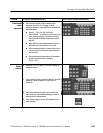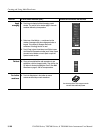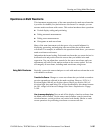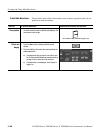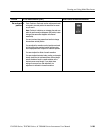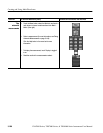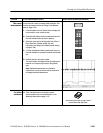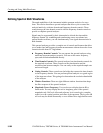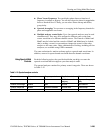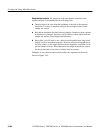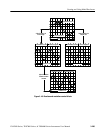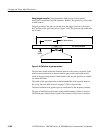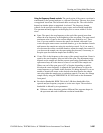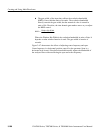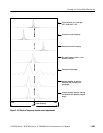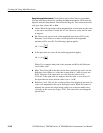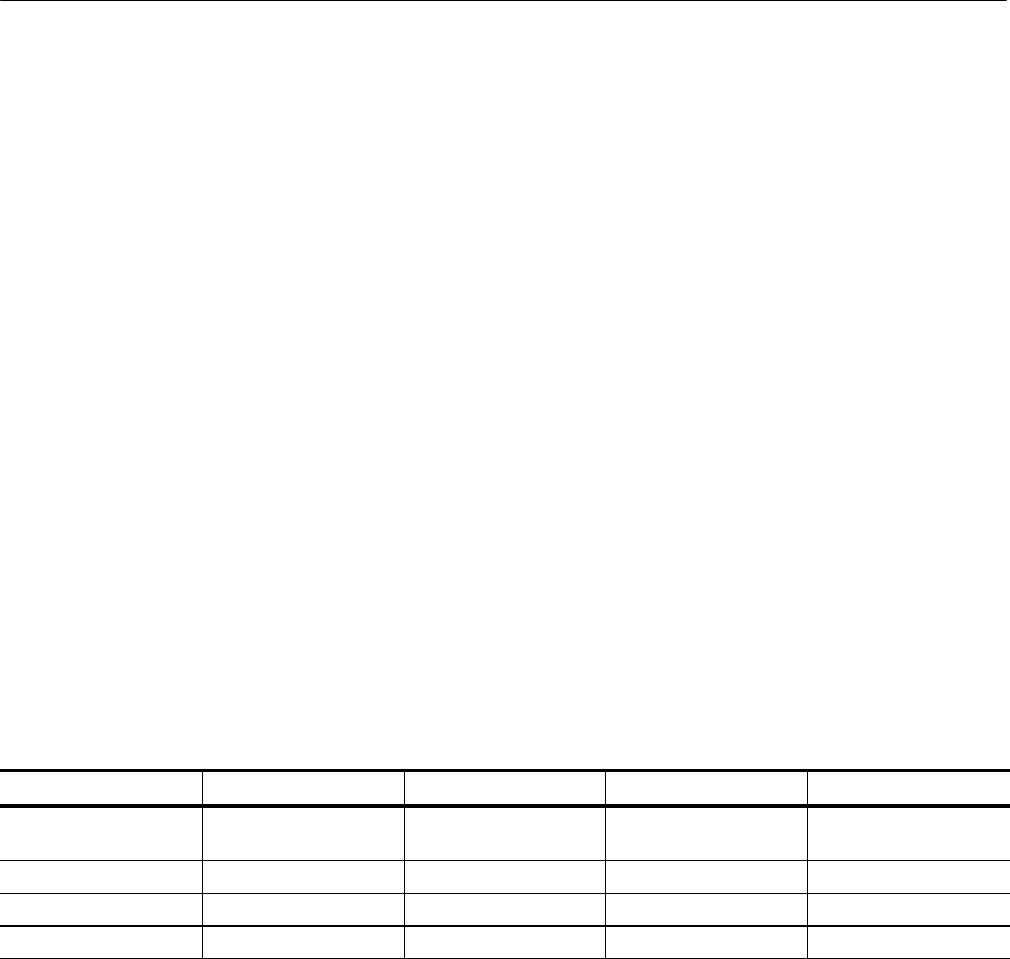
Creating and Using Math Waveforms
CSA7000 Series, TDS7000 Series, & TDS6000 Series Instruments User Manual
3- 203
H Phase Versus Frequency: You can display phase data as a function of
frequency in radians or degrees. You can zero the noise phase for magnitudes
below a threshold level. Finally, you can select Phase unwrap and dθ/dω,
group delay.
H Spectral Averaging: You can turn on averaging in the frequency domain for
phase and magnitude waveforms.
H Multiple analyzer control locks: Up to four spectral analyzers may be used
simultaneously. They may all be assigned to different gates on the same
source waveform or to different channel sources. The controls of Math1 and
Math2 may be locked and the controls of Math3 and Math4 may be locked;
that is, turning a control on one analyzer changes the control on the other
analyzer to the same value. Other combinations of locking, including all four
analyzers, are available using GPIB commands.
The same exclusions for math waveforms apply to spectral math waveforms. In
addition, sources for spectral math waveforms must be channel waveforms.
Read the following topics; they provide details that can help you create the
spectral waveform that best supports your data-analysis tasks.
The spectral analyzer contains five primary control categories. These are shown
in Table 3--12.
Table 3- 12: Spectral analyzer controls
Time controls Gate controls Frequency controls Magnitude controls Phase controls
Source Position Center dB, dBm linear, real
imaginary
degrees, radians, group
delay
Duration, record length Duration Span Ref level Zero threshold
Duration, sample rate Window Resolution bandwidth Ref level offset Phase Unwrap
Resolution
Using Spectral Math
Controls



